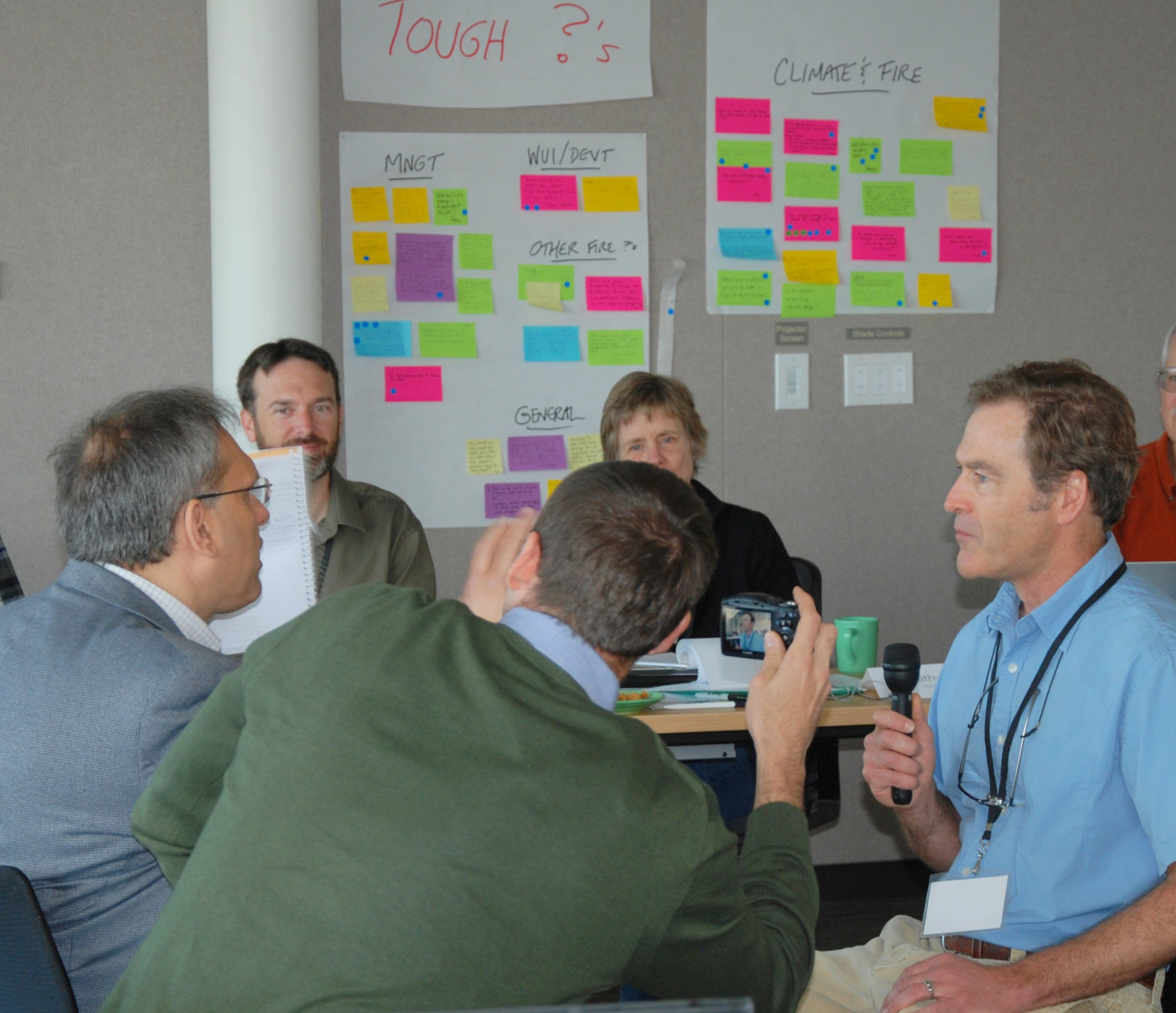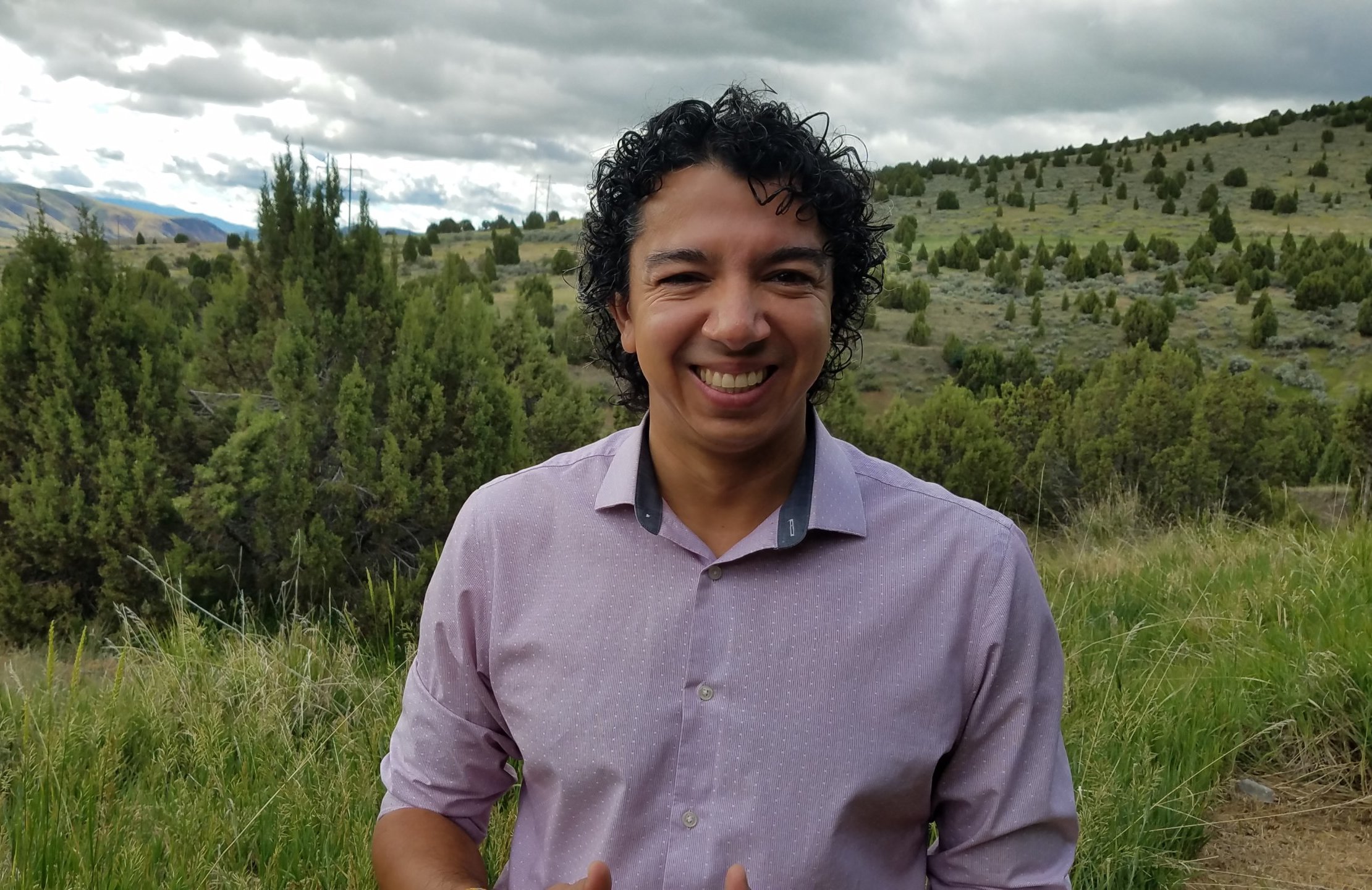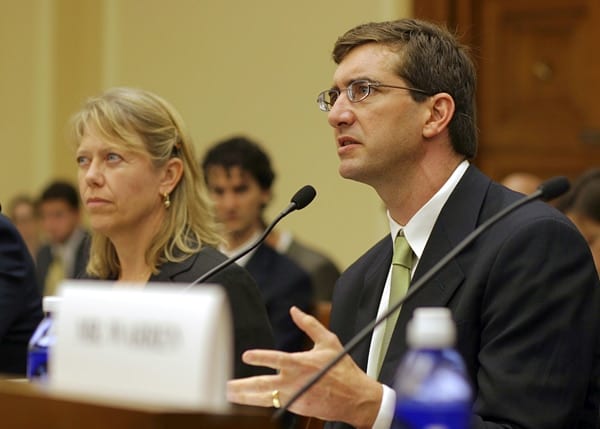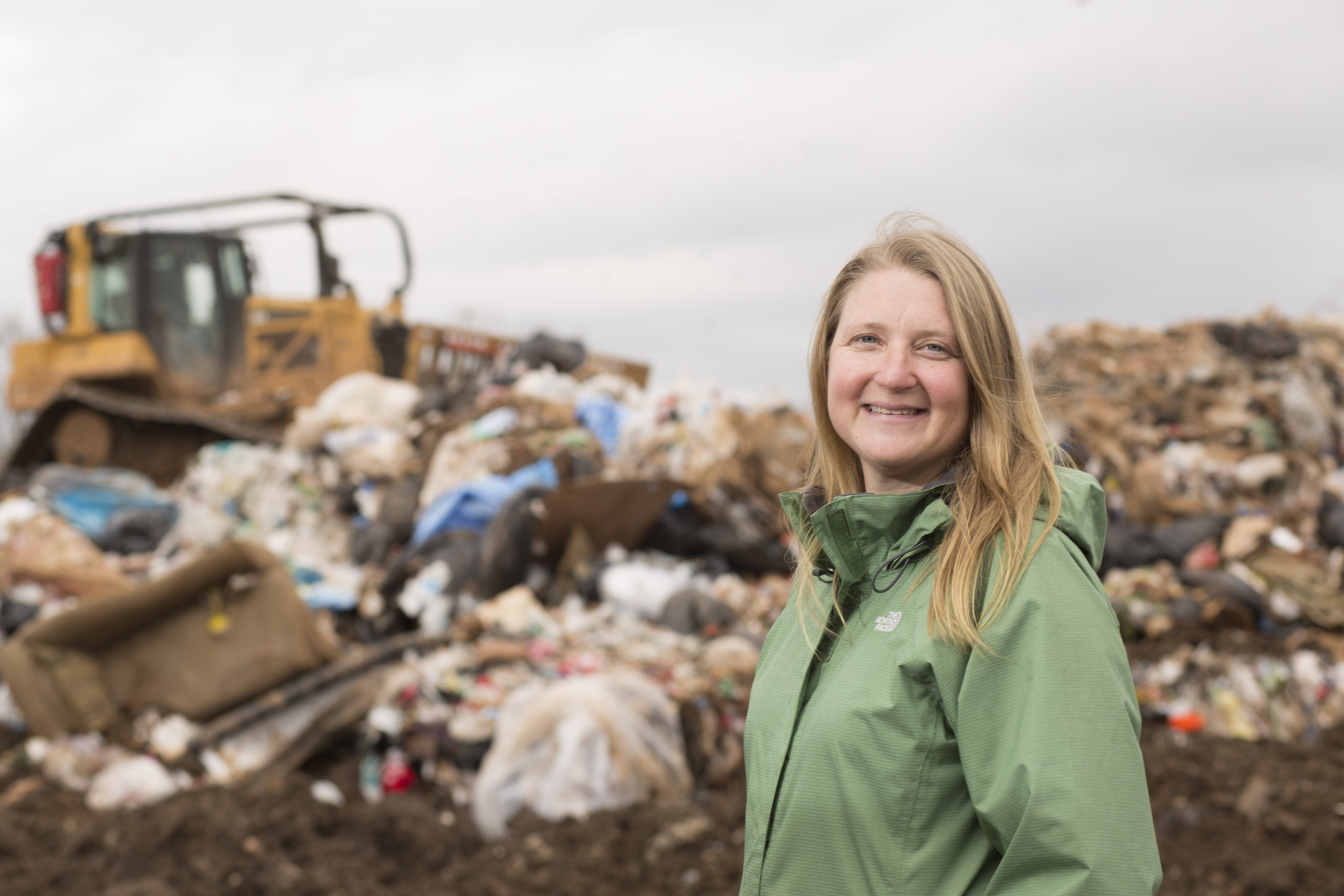“When you look at it on paper, you would think that our group really disagreed, but it’s so different face to face. Fire ecology is a discipline where there is a lot of back and forth. Those arguments at the beginning of scientific papers can seem so heated, but once we got into the room with the journalists, we realized that there were so many things that each of us 100 percent agreed with but that were not being cleanly communicated.” – Dr. Brian Harvey, University of Washington
The story becomes even more complex when another communication challenge is layered on – geographical variation. In fire science, context and place matter. What scientists observe in grasslands differs from shrub lands; lower elevation forests differ from higher elevation ones. How fire plays out in the northern Rockies differs from the Ponderosa Pine forests of the Southwest. So how do scientists communicate the details of what they observe, not only as individuals in a specific context, but also as a community, to more coherently address the tough questions that are top of mind for the public and policymakers about wildfires?
After learning about these communication challenges through conversations with leaders in the fire science community, we saw an opportunity to help. We learned that questions about what is ‘natural’, fire’s history and future, and the efficacy of thinning and other forest restoration measures have caused apparent rifts in the wildfire science community, especially among those who work in different geographies. The lack of coherent communication from the community as a whole was contributing to a lack of clarity in the public discourse.
To address this, the Wilburforce Foundation supported us to design and host a workshop, co-led by Jennifer Balch, Max Moritz, and Monica Turner, that brought together 22 U.S. and Canadian scientists along with top journalists from The Economist, Science, The Globe and Mail, and The Daily Climate. The workshop sought to build a sense of community and train the scientists to communicate effectively, both collectively and as individuals.
“When you look at it on paper, you would think that our group really disagreed, but it’s so different face to face. Fire ecology is a discipline where there is a lot of back and forth. Those arguments at the beginning of scientific papers can seem so heated, but once we got into the room with the journalists, we realized that there were so many things that each of us 100 percent agreed with but that were not being cleanly communicated,” said University of Wisconsin’s Brian Harvey. Using our core communication exercises, the scientists were able to more coherently articulate their collective understanding about the implications of wildfire for people and the environment.
To effectively communicate their messages to non-scientists, the scientists needed a different kind of support. The COMPASS team and the journalist trainers offered insights into public perceptions of wildfire, how journalists cover fire and climate, and how scientists can distill complexity and connect with the concerns and values of their audiences. For attendee Brian Harvey, these interactions were eye-opening: “It’s easy to get the impression that reporters love controversy,” he said. “But talking with the reporters at the workshop, I’ve seen the reality is very different. They need to write a good story but they’re not looking to stir up the pot. They are looking to accurately report things. If they report something that’s not factual, it’s because you were not clear.”
Academic debates and complexities can erode public understanding of what scientists do know and agree upon, yet science progresses through spirited arguments and connections across different contexts and systems. We believe more dialogue among scientists can help with communicating knowledge as well as advancing science. We continue to support these scientists as they work more closely together, by connecting them to our extensive networks of journalists and policymakers, supporting them to grow their own networks, and encouraging them to engage with society.



